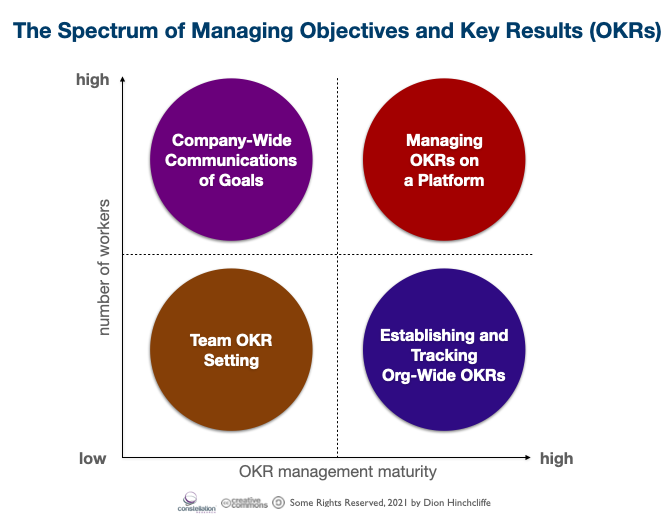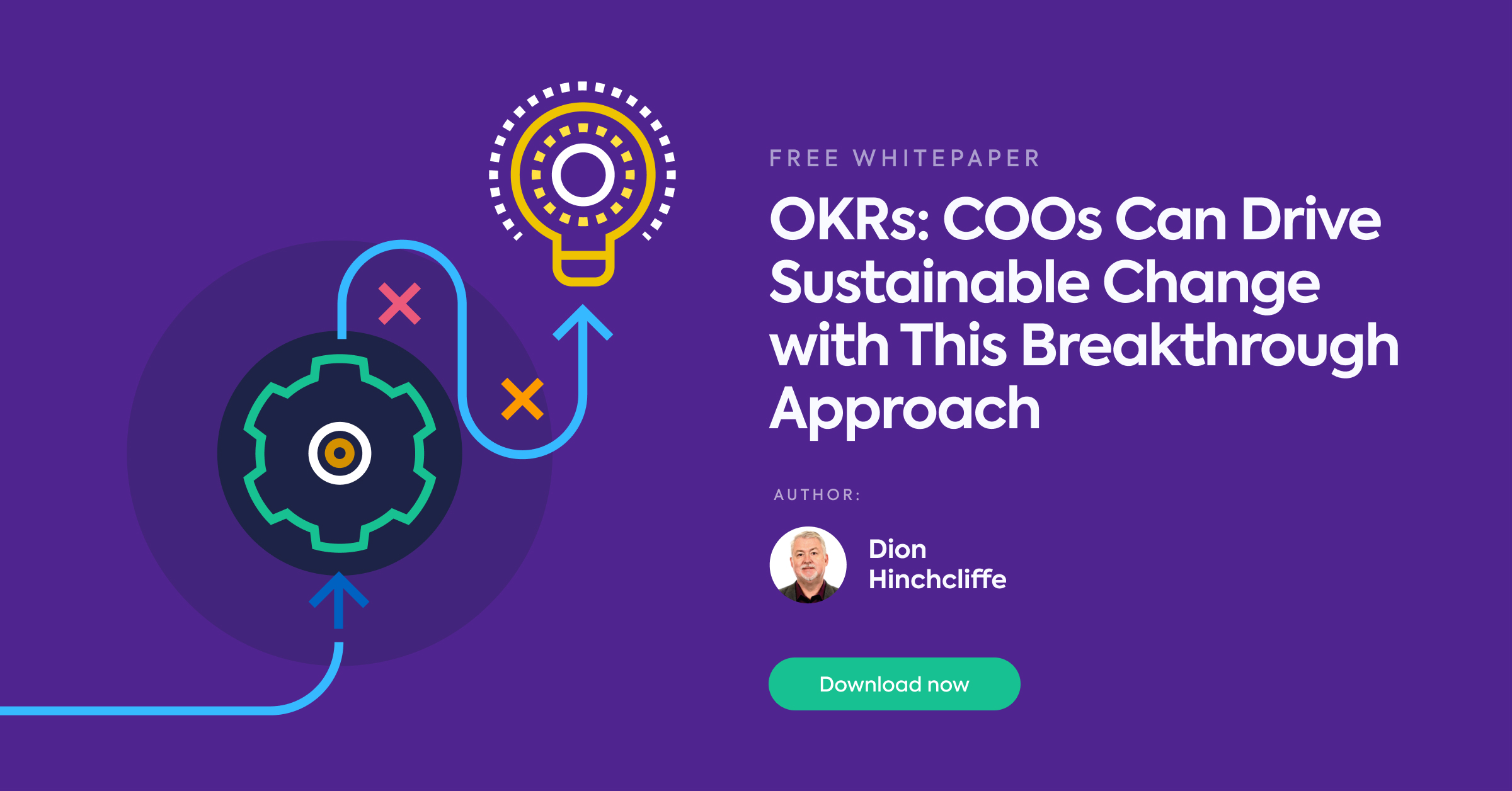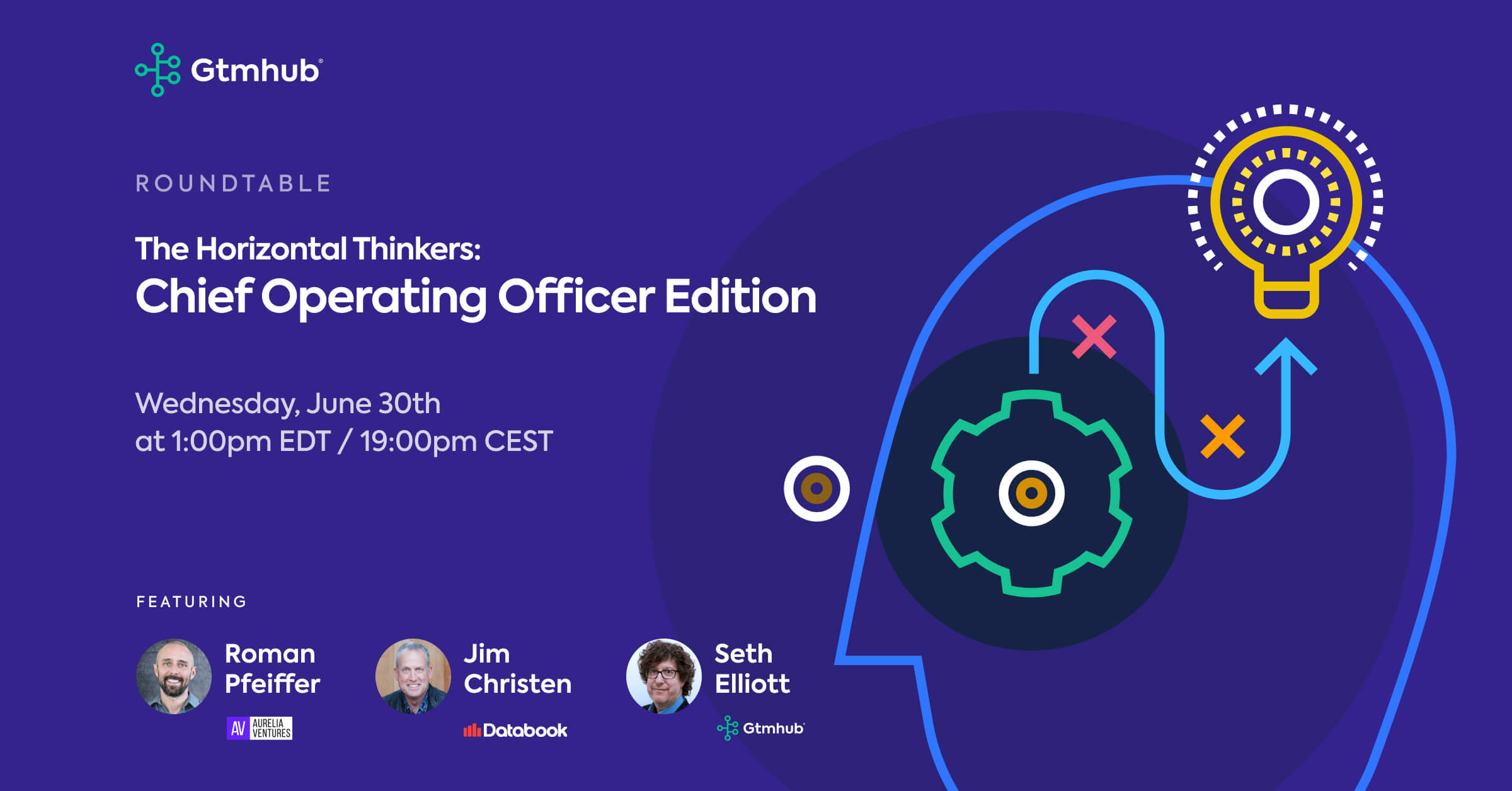As a general rule of thumb, management theory has steadily fallen behind what new technologies are making possible. Digital performance management, talent analytics, work coordination and other powerful new Future of Work capabilities are now commonplace because of new breakthroughs in technologies and design.
But these developments are often poorly accounted for in how we strategically manage our businesses. Now a growing body of evidence has demonstrated that a potent enterprise-wide management approach that was originally pioneered by leading technology companies beginning a few decades ago has demonstrated real value in improving how we operate and transform our organizations. What's more, this approach can be combined with the aforementioned Future of Work technologies to consistently achieve better business outcomes.
Known as Objectives and Key Results, or OKRs, the approach was first used widely by senior managers at Intel, where it then spread to Google and was subsequently adopted by LinkedIn, Twitter, Dropbox, Spotify, AirBnB and Uber. It's hard not to notice that these companies are leaders in their industries, and it's widely believed that OKRs helped them get there.
The idea behind OKRs themselves is simple, and that's also why they work so well: OKRs help organizations better understand and achieve their objectives through clearly defining and then measuring concrete, specific outcomes.
It's the simplicy and therefore the acccessibiily of OKRs that makes them interesting right away. But it's the results they bring about that keeps them in place. In my experience, when I run across a top technology team in the industry, I can tell soon after we meet whether they are using OKRs. The team is directed, focused, and each member clearly knows what they are about. This relentless focus on bringing about a desired result in the operations of a company has since led to OKRs spread out well beyond its tech roots and into the broader functioning of organizations today.
I've mentioned OKRs in the context of operations several times now. Although the Chief Information Officer (CIO) has often been the entry point for OKRs in a typical organization in years past, it is increasingly the Chief Operating Officer (COO) , the role most chiefly responsible for the day-to-day operations of an organization, that is bringing them to bear operationally. Intriguingly, when I come across a COO using OKRs, they are often grappling with major changes that they have struggled to progressively activate in the day-to-day functioning of the organization.
With OKRs tied so intimately with the results that are sought by an organization -- including its teams and individual contributors -- the COO can use the future-looking view that the approach is defined by to drive large-scale changes, needed enterprise-wide shifts, and even overarching digital and business transformation.
The secret of course is being able to effectively adopt and wield OKRs across the organization. Given the growing interesting that COOs have in tapping into the results that OKRs have demonstrated in the field, I've recently published a new research report that explores how COOs can get the most effective results from the approach. In particular, it is in balancing the maturity of OKRs with the scale, which can be greatly assisted by an enabling platform that's been shaped for the purpose (see figure above.)
This new research is one of the very first that explores how to activate and succeed with OKRs in operations. Highlights include:
- Developing a rollout and operations plan for OKRs
- The key review dimensions for OKRs
- How to use to OKRs as a top-level operating model
- Using automation to assist the OKR process
- Building an effective operational capability around OKRs
If you're seeking the how, what, and whys of COOs and OKRs, please read my new report — OKRs: COOs Can Drive Sustainable Change with This Breakthrough Approach — which provides a thorough examination of OKR methodology through the lens of the COO role. You can download a complimentary copy of the report for a limited time, courtesy of GTMHub.
For another exploration of OKRs and the COO in more detail please join an all-star cast on the topic of OKRs for The Horizontal Thinkers Roundtable: Chief Operating Officer Edition. It's a valuable chance to participate in OKR-centric conversations with other COOs. Please register for the event to get the latest perspectives.
My Current Future of Work Research and Analysis
Building a new, better, and more collaborative future of work post-pandemic | Citrix
The Crisis-Accelerated Digital Revolution of Work
Reimagining the Post-2020 Employee Experience
It's Time to Think About the Post-2020 Employee Experience
How Work Will Evolve in a Digital Post-Pandemic Society
Revisiting How to Cultivate Connected Organizations in an Age of Coronavirus
Working in a coronavirus world: Strategies and tools for staying productive | ZDNet
A Checklist for a Modern Core Digital Workplace and/or Intranet
Creating the Modern Digital Workplace and Employee Experience
The Challenging State of Employee Experience and Digital Workplace Today





